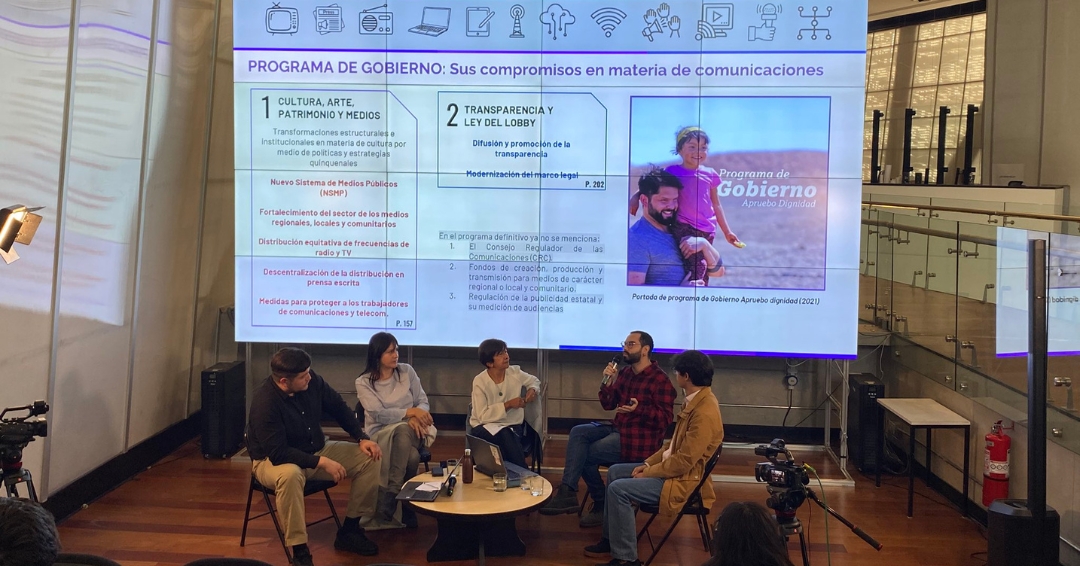From May 2nd to 4th, the Chilean State and UNESCO hosted the 31st World Press Freedom Day Conference in Santiago.
The Convergent Regulation team had an active participation in the global conference held in our country.
With presentations and panels, an educommunication exhibition and a keynote lecture for the event’s closing, researchers Chiara Sáez, Patricia Peña, Javier García and research assistant Jorge Avilés had a prominent presence in the conference held at GAM and the main campuses of Universidad de Chile and Pontificia Universidad Católica. The meeting was organized together with the University of Liverpool, Sheffield University and Oslomet University, and it contemplated 31 panels, two keynote lectures and 168 speakers from over 40 countries..
In a scenario where the situation of the press is increasingly complex, and with important changes that constantly affect journalistic work, such as physical dangers, job insecurity, new advertising guidelines, incumbent actors such as social media, digital platforms and artificial intelligence, and a whole economic market devoted to disinformation, globally discussing these issues today is fundamental.
In this context, last year, the United Nations Educational, Scientific and Cultural Organization (UNESCO) announced Chile as the host of the global 2024 conference on freedom of the press“World Press Freedom Day is celebrated every year on May 3rd, and a series of parallel events are held as part of this commemoration, including a conference aimed at gathering the academia’s perspectives on these issues,” stated the Faculty of Communication and Image (FCEI) of Universidad de Chile
The academic conference was entitled “Safeguarding Press Freedom in the Midst of Journalistic Insecurity: Perspectives from the Academic World”, and it was held on May 4th at the central campuses of the two host universities after two prior days of intense activities that brought together educators, the civil society, media and communications activists.
The activity sought to “generate a space for discussions on the multiple dimensions of safety in exercising journalism based on various theoretical, epistemological and methodological approaches, and through contextualized, decolonized and intersectional perspectives”, added a publication by FCEI.
The conference’s closing lecture was given by the academic and lead researcher of the Fondecyt Project on Convergent Regulation, Chiara Sáez, who made a presentation about “Freedom of Expression in the 21st Century and Challenges for Universities”. Sáez began her keynote address with the question “Why should we care about freedom of expression? The short answer is because what we research, teach and what we try to influence in the public space ends up being about freedom of expression. The long answer is like peeling an onion. It is a phenomenon with many layers, and the first thing is to ask ourselves what happens in Chile in this regard.””.
In addition to sharing figures and various aspects of the findings of her latest research on the subject, Sáez explained that according to the study “Application of Safety Indicators for Journalists in Chile” conducted for UNESCO by the Observatory of the Right to Communication (ODC), in recent years, freedom of the press and the safety of journalists and communicators in the country has experienced a concerning deterioration.
For this reason, addressing these issues in multidisciplinary meetings that bring professionals together and help them dialogue with their peers but also with the civil society, the academia and the industry is a constant necessity.











